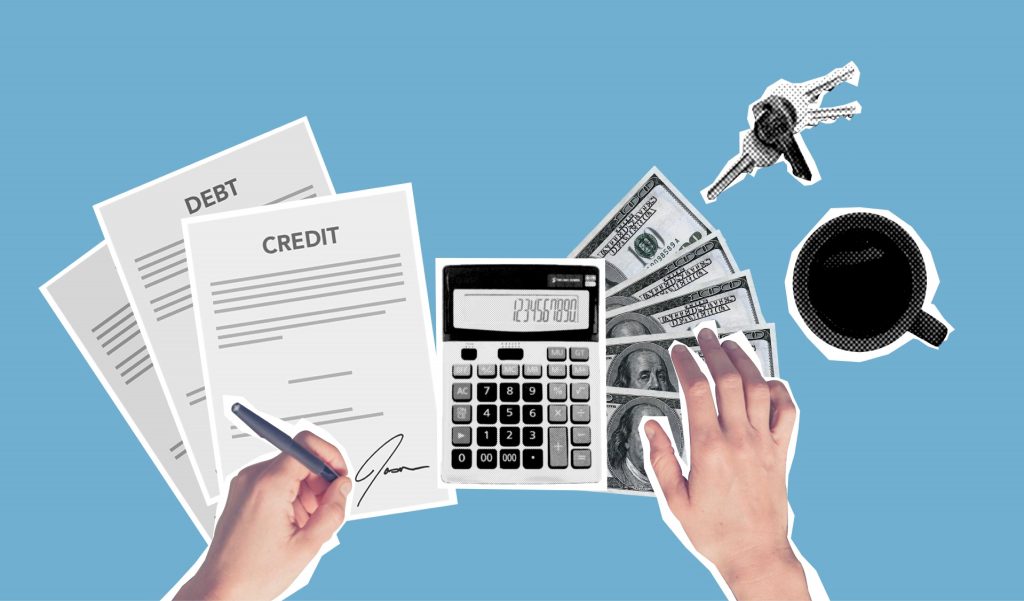With over 45 percent of buyers purchasing a home for the first time, a large portion of home buyers are experiencing the complexities and challenges of buying a home for the first time. And, without a doubt, financing is an important consideration for those looking to buy a home. Take a look at what many first-time home buyers wish they knew about financing before taking on the responsibility of a mortgage.
Down Payments & the Myth of 20%

Even though most buyers have got a mortgage to finance their home, they usually will also need a lump sum of cash to put towards a down payment — a hurdle that prevents many would-be buyers from making the leap to homeownership.
But just because you don’t have a large down payment doesn’t mean you can’t buy. Contrary to popular belief, a 20% down payment is not required for homeownership. Although buyers who do not put down the full 20% typically have to pay a premium for the extra risk lenders take — private mortgage insurance (PMI) — they may still be in a position that is more financially advantageous than paying monthly rent payments.
So, while down payments were once thought to be the most difficult barrier to homeownership, many first-time home buyers are finding ways around the 20% myth and securing their homes anyway.
Loans Aren’t One-Size-Fits-All
Homes come in a variety of styles and price points, and so do the financing options. There are numerous loan options available, but determining which one is best for you takes some time and research.
Many homebuyers believe that the best option is the ever-popular 30-year fixed loan, which provides the benefit of a fixed interest rate regardless of how the market rises or falls. However, if you do not intend to live in your home for the next 20 or 30 years, an adjustable rate mortgage (ARM) may be a viable option to consider. This loan type allows you to get a lower initial interest rate than a fixed-rate mortgage, but it isn’t guaranteed to stay at that rate, so make sure you understand how much the interest rate could change before choosing that loan type.
A government-backed loan may be a good option if your main barrier is a low down payment or a low credit score. FHA loans, VA loans, and USDA loans provide unique financing options for people with low credit scores, low down payments, or who want to live in rural areas.
Depending on your specific situation, a loan type that addresses specific pain points may be more appropriate for you than a traditional loan type.
You Can (and Should) Get Pre-Approved Early
Pre-approval is essential in financing a home and can be a major impediment if not obtained. Pre-approval is required for the vast majority (80%) of buyers who finance their home with a mortgage. And getting it done early can be beneficial.
Getting pre-qualified or pre-approved for a mortgage early in your home search can help you stay within your budget and avoid disappointment later. Your lender will look over your financial information and give you an estimate of how much money you can borrow.
Another reason to start early is to catch any errors on your credit report and give yourself time to correct them. A lower credit score may result in a higher interest rate, which could cost you tens of thousands of dollars in additional interest over the life of your loan.
Getting pre-approved or pre-qualified early may also prove to agents that you are a serious shopper who’s done their homework. Buyers who use an agent are more likely to obtain pre-approval than those who don’t work with an agent, indicating that pre-approval is either a prerequisite to securing an agent or highly recommended by their agent.
Remember that you are not required to work with the lender who pre-approved you, so it’s fine to shop around when the time comes to lock in a rate.
The Bottom Line
If you put in some upfront work and anticipate the challenges that may be ahead of you, you’ll be able to overcome some of the biggest hurdles buyers face and have a smoother, less stressful process. It’s important to shop around for lenders and research different loan types to ensure you’re getting the best possible option for your specific situation. And if you’re concerned about saving enough money for a down payment, there are plenty of options available to help alleviate that burden and get you into a home.

